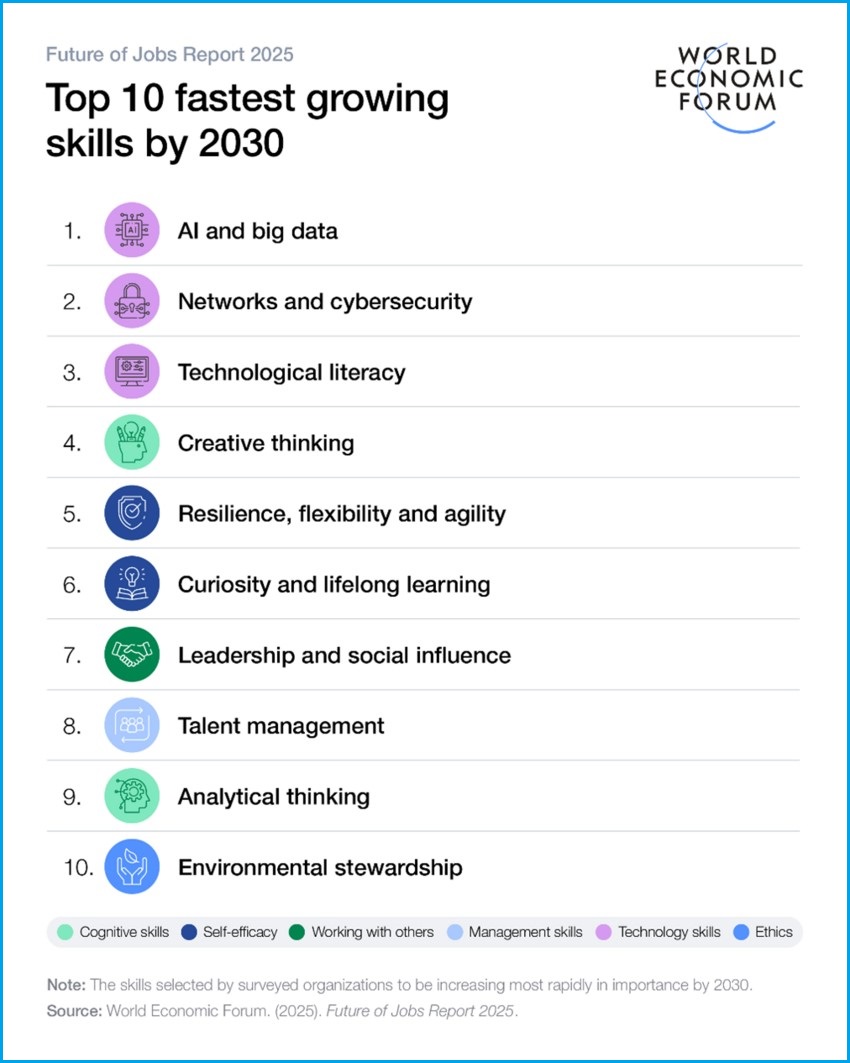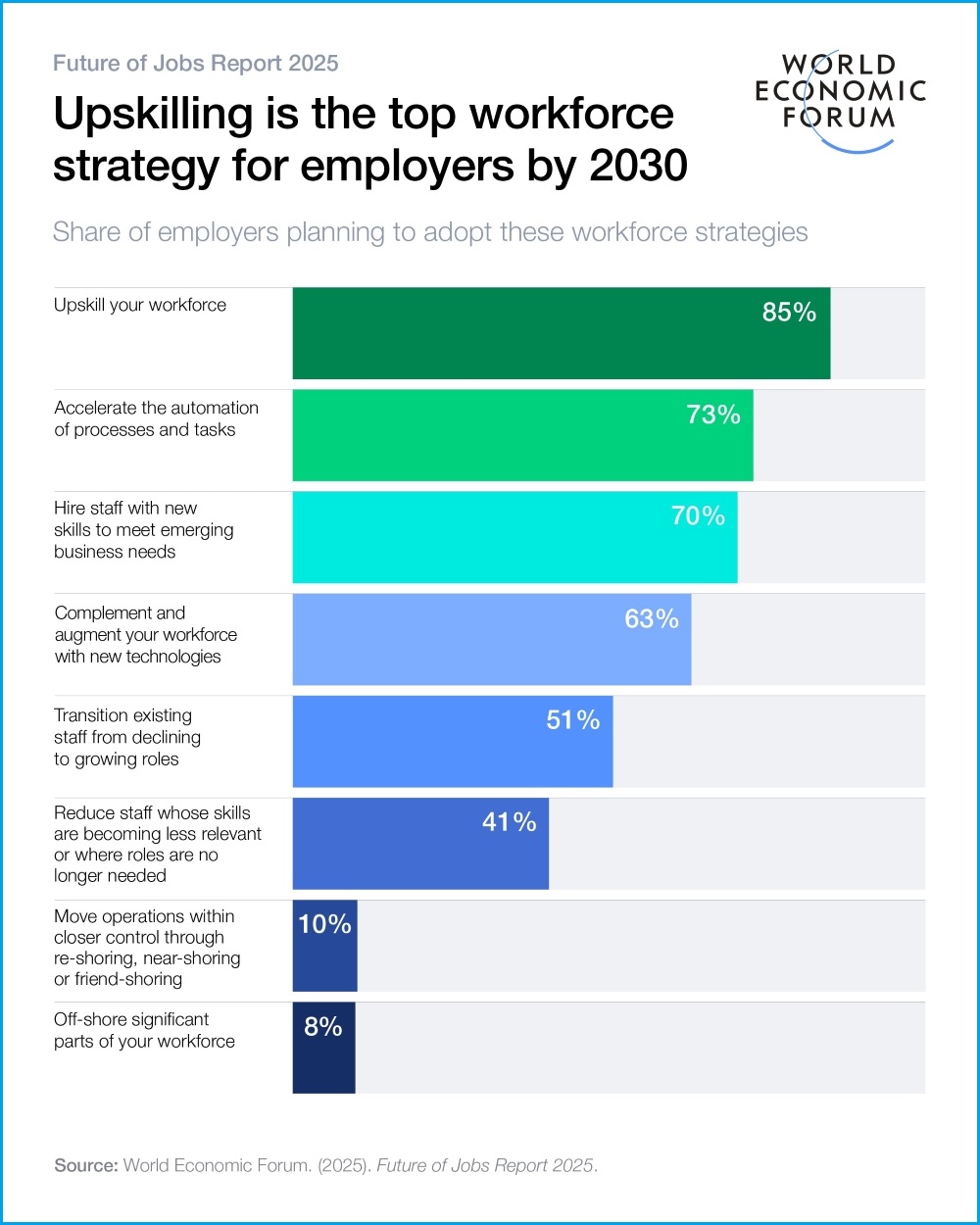More than one in five jobs will be fundamentally transformed by technology and the green transition in the next five years, according to a new report by the World Economic Forum.
The 2025 Future of Jobs Report also found tech jobs are expected to be the fastest-growing roles from 2025 to 2030, and tech-related skills will be the most in demand capabilities over that time.
The report is based on 1,000 employers who collectively represent more than 14 million workers in 22 industry clusters and across 55 economies around the world.
It found that globally, 22 per cent of all jobs are expected to fundamentally change by 2030, due primarily to technological change, the green transition, geo-economic fragmentation, economic uncertainty and demographic shifts.
This showed a pressing need to reskill workforces to meet these challenges and opportunities, Australian Industry Group (Ai Group) chief executive Innes Willox said.
“The report reveals a tangled mix of global drivers transforming jobs globally and in Australia, resulting in skill disruption, new and evolving skill demands — particularly in technology-related fields — and a substantial need for reskilling and upskilling,” Willox said.
“It demonstrates the importance of building the capability and size of Australia’s workforce now and over the coming years.”
Ai Group is the Australian partner of the 2025 Future of Jobs Report, which is released every two years and used to predict changes to the global employment market.
In-demand skills
On top of the changing roles, workers can expect just under 40 per cent of their existing skill set to be transformed or become outdated in the next five years, according to the report.
The large majority of surveyed employers said their most sought after skill in 2025 would be analytical thinking, followed by resilience, flexibility and agility, and leadership and social influence.
The fastest-growing skills for this year will be in artificial intelligence and big data, followed by networks and cybersecurity, and tech literacy in general.

Image: World Economic Forum / Supplied
The report also found there is expected to be a 7 per cent net growth in total employment globally between 2025 and 2030, equating to 78 million new jobs.
It found technology-related jobs would be the fastest-growing roles in percentage terms, followed by green and energy transition roles.
Some of these jobs set to be in demand in the next five years are big data specialists, fintech engineers, AI and machine learning specialists, and software and application developers. Green energy roles such as autonomous vehicle specialists and renewable energy engineers will also be in high demand.
Nearly all the businesses surveyed were planning to prioritise the upskilling of their workers as a core element of their strategy in the coming five years.
The skills gap
More than 60 per cent of employers around the world said skills gaps were the biggest barrier to the transformation of their business, with a need for a holistic response to this growing issue, Willox said.
“While they are making considerable effort to diversify, upskill and support their workforces, this must be complemented by effective public jobs and skills policies in the next five years,” he said.
“That must include strategies to build talent for new and emerging roles; funding for, and provision of, broad reskilling and upskilling; and strategies to support diversity, equity and inclusion, and displaced and mature-aged workers.”

Image: World Economic Forum / Supplied
Sixty-five per cent of Australian companies now identified skills gaps as major barriers, according to the report.
Globally, half of all employers surveyed said they were planning to shift their business to target new opportunities from AI.
But they will need to ensure they bring their workers along for the ride, after a 2024 report found Australian workers were exhausted and uninspired, and disillusioned with their workplace’s focus on technology and AI.
The latest report has backed up the findings of a report last year which found a tenth of all workers hired in 2023 had job titles that didn’t exist at all in 2000.










